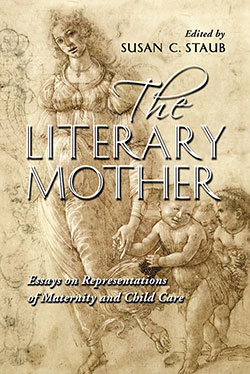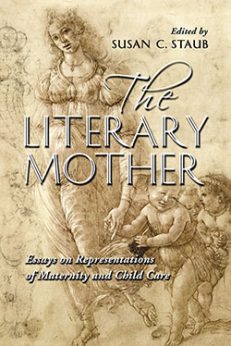The Literary Mother
Essays on Representations of Maternity and Child Care
$39.95
In stock
About the Book
The essays in this book examine the ideology of motherhood in British and American literature from the 16th to the 21st centuries. This book looks at the institution of motherhood, that is, at various cultural interpretations and manipulations of maternity. Presenting mothers whose roles are often empowering yet confining, these essays scrutinize three distinct aspects of motherhood: its social and cultural construction; the significance of maternal absence; and, finally, its representation as an agent of social change. Literary works examined include William Shakespeare’s Venus and Adonis; Daniel Defoe’s Roxana; John Steinbeck’s The Grapes of Wrath; Faulkner’s The Sound and the Fury; Charles Dickens’ Dombey and Son; Harriet Jacobs’ Incidents in the Life of a Slave Girl; Dorothy Leigh’s The Mother’s Blessing; and W.S. Penn’s Killing Time with Strangers, among others.
About the Author(s)
Bibliographic Details
Edited by Susan C. Staub
Format: softcover (6 x 9)
Pages: 273
Bibliographic Info: notes, bibliographies, index
Copyright Date: 2007
pISBN: 978-0-7864-3046-8
eISBN: 978-1-4766-2072-5
Imprint: McFarland
Table of Contents
Introduction 1
SECTION I: Social and Cultural Negotiations
1. “My throbbing heart shall rock you day and night”: Shakespeare’s Venus, Elizabeth, and Early Modern Constructions of Motherhood 15
2. The “Unnatural” Mother-Daughter Relationship in Daniel Defoe’s Roxana 33
3. Of Home-Makers and Home-Breakers: The Deserving and the Undeserving Poor Mother in Depression Era Literature 48
4. The Construction of Maternity in Southern Literature: Southern Ladies, Southern Mothers, Southern Mammies, and Maternal Sexuality 69
SECTION II: Negotiating Absence
5. The Absent Mother: Negotiations of Maternal Presence in the Gothic Mode 95
6. “The Instinct of Nature Spoke Audibly”: Representations of the Mother-Child Bond in Mary Shelley’s Fiction 117
7. The Contested Site of Maternity in Charles Dickens’s Dombey and Son 138
SECTION III: Negotiating Power
8. Dorothy Leigh’s The Mother’s Blessing and the Political Maternal Voice in Seventeenth-Century England 161
9. “I, the Mother”: Inscribing Maternal Right in Early Modern Mothers’ Elegies 185
10. The Ethos of Motherhood and Harriet Jacobs’ Vision of Racial Equality in Incidents in the Life of a Slave Girl 200
11. What to Do About Motherhood: Feminist Theory and Feminist Fiction Negotiate Motherhood’s Dilemmas 224
12. Ceremony and Power: The Significance of the Mother in Killing Time with Strangers 245
About the Contributors 261
Index 263






